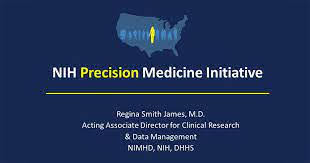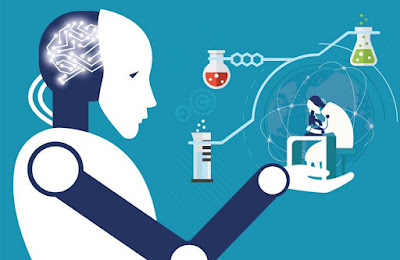Precision medicine, or preventative and treatment measures that account for individual variability, is not a new concept.
For more than a century, blood type has been used to guide blood transfusions.
The Precision Medicine Initiative (PMI), which was launched by President Barack Obama in 2015, is a long-term research endeavor including the National Institutes of Health (NIH) and a number of other public and commercial research organizations.
The initiative's goal, as stated, is to learn how a person's genetics, environment, and lifestyle can help determine viable disease prevention, treatment, and mitigation strategies.
It consists of both short- and long-term objectives.
The short-term objectives include advancing precision medicine in cancer research.
Scientists at the National Cancer Institute (NCI), for example, want to employ a better understanding of cancer's genetics and biology to develop new, more effective treatments for diverse kinds of the illness.
The long-term objectives of PMI are to introduce precision medicine to all aspects of health and health care on a wide scale.
To that goal, the National Institutes of Health (NIH) created the All of Us Research Program in 2018, which enlists the help of at least one million volunteers from throughout the country.
Participants will provide genetic information, biological samples, and other health-related information.
Contributors will be able to view their health information, as well as research that incorporates their data, throughout the study to promote open data sharing.
Researchers will utilize the information to look at a variety of illnesses in order to better forecast disease risk, understand how diseases develop, and develop better diagnostic and treatment options (Morrison 2019, 6).
The PMI is designed to provide doctors with the information and assistance they need to incorporate personalized medicine services into their practices in order to accurately focus therapy and enhance health outcomes.
It will also work to enhance patient access to their medical records and assist physicians in using electronic technologies to make health information more accessible, eliminate inefficiencies in health-care delivery, cut costs, and improve treatment quality (Madara 2016, 1).
While the initiative explicitly states that participants will not get a direct medical benefit as a result of their participation, it also states that their participation may lead to medical breakthroughs that will benefit future generations.
It will generate substantially more effective health treatments that assure quality and equality in support of efforts to both prevent illness and decrease premature mortality by extending evidence-based disease models to include individuals from historically underrepresented communities (Haskins 2018, 1).
Find Jai on Twitter | LinkedIn | Instagram
You may also want to read more about Artificial Intelligence here.
See also:
Clinical Decision Support Systems; Computer-Assisted Diagnosis.
References & Further Reading:
Collins, Francis S., and Harold Varmus. 2015. “A New Initiative on Precision Medicine.” New England Journal of Medicine 372, no. 2 (February 26): 793–95.
Haskins, Julia. 2018. “Wanted: 1 Million People to Help Transform Precision Medicine: All of Us Program Open for Enrollment.” Nation’s Health 48, no. 5 (July 2018): 1–16.
Madara, James L. 2016 “AMA Statement on Precision Medicine Initiative.” February 25, 2016. Chicago, IL: American Medical Association.
Morrison, S. M. 2019. “Precision Medicine.” Lister Hill National Center for Biomedical Communications. U.S. National Library of Medicine. Bethesda, MD: National Institutes of Health, Department of Health and Human Services.








